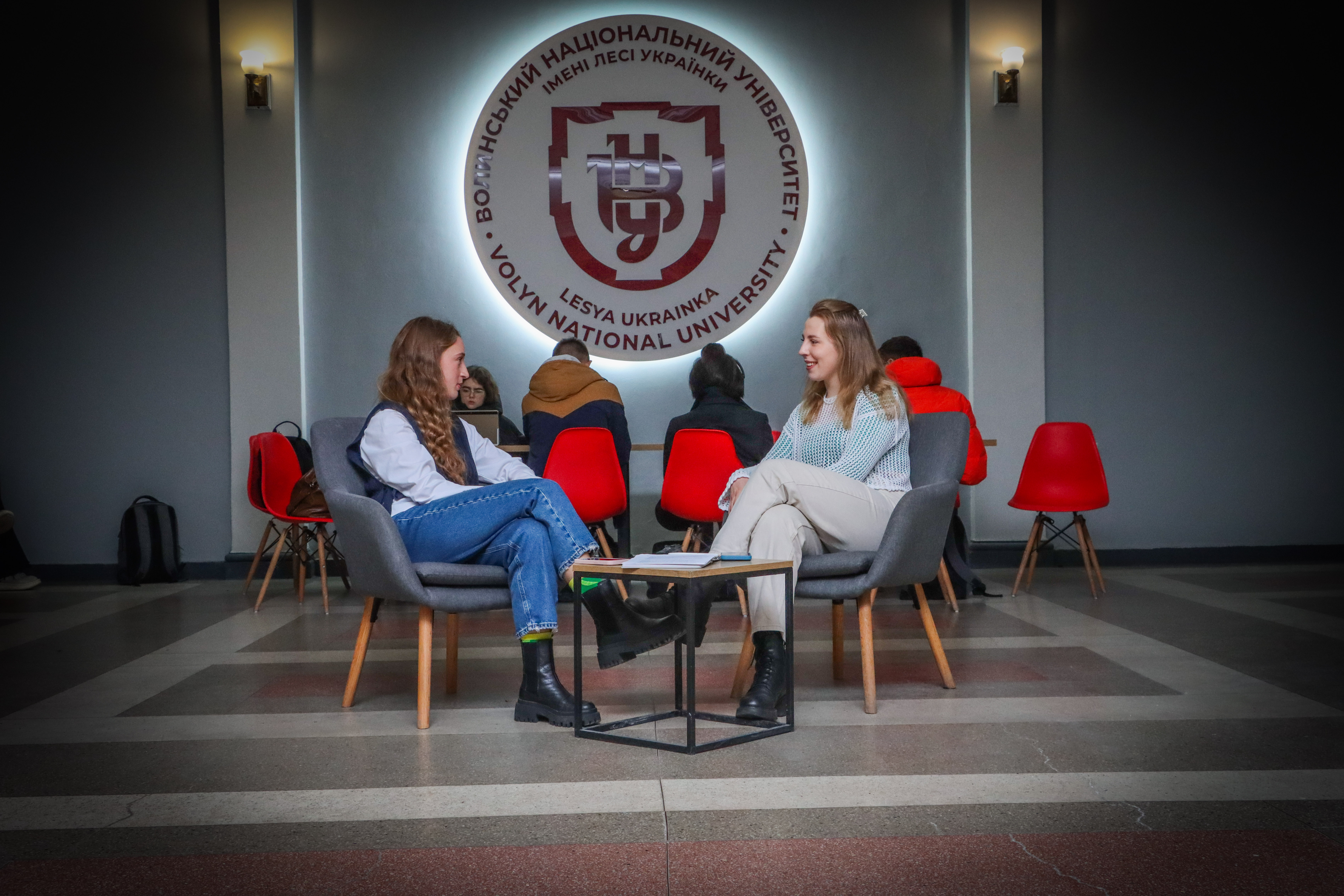One of the prospects of studying at Lesya Ukrainka Volyn National University is the “Double Diploma” programme opening up new horizons for the students. The students of certain specialties can participate in it, in particular those studying on “Polish Studies”. We talked with fourth-year student Diana Hatsyk, who shared her own experience of studying abroad. She talked about the difficulties she had to face, how she manages to successfully combine her studies with the development of her own business, and also shared the secrets of coping with all the challenges. More about Diana’s interesting and inspiring experience, as well as details about the “Double Diploma” programme in our material!
– Diana, why did you choose Lesya Ukrainka Volyn National University for your studies?
– I had a difficult choice, because in the eleventh grade I knew for sure that I didn’t want to study in Lutsk. I decided to set priorities: Kyiv, Lviv, Lutsk. But at the last moment I chose Lutsk as my first priority. Although I wanted to change the priority, it would have had a bad effect on the entrance results. I had good results in the external examinations, so I knew that I would definitely pass the state exam in Lutsk, and I also had benefits and a rural coefficient. That’s why I decided to enter Lutsk anyway. It’s easier for me, I don’t have to travel a lot, Lutsk is a cheaper place to live. The people are more like me, because, for example, in Kyiv the mentality is a little different, you have to get used to those people, they are at a slightly different social and financial level, so I decided that Lutsk is closer to me in all respects. When I started studying, I immediately liked it very much. We had many different trips and events. Melnyky, Kostiukhnivka, Lviv, Tustan… And all this in one month! I had never seen so much in just two years as I did in a month at the University. Then we started studying via distance learning and there was no longer such an atmosphere, but I really liked studying.
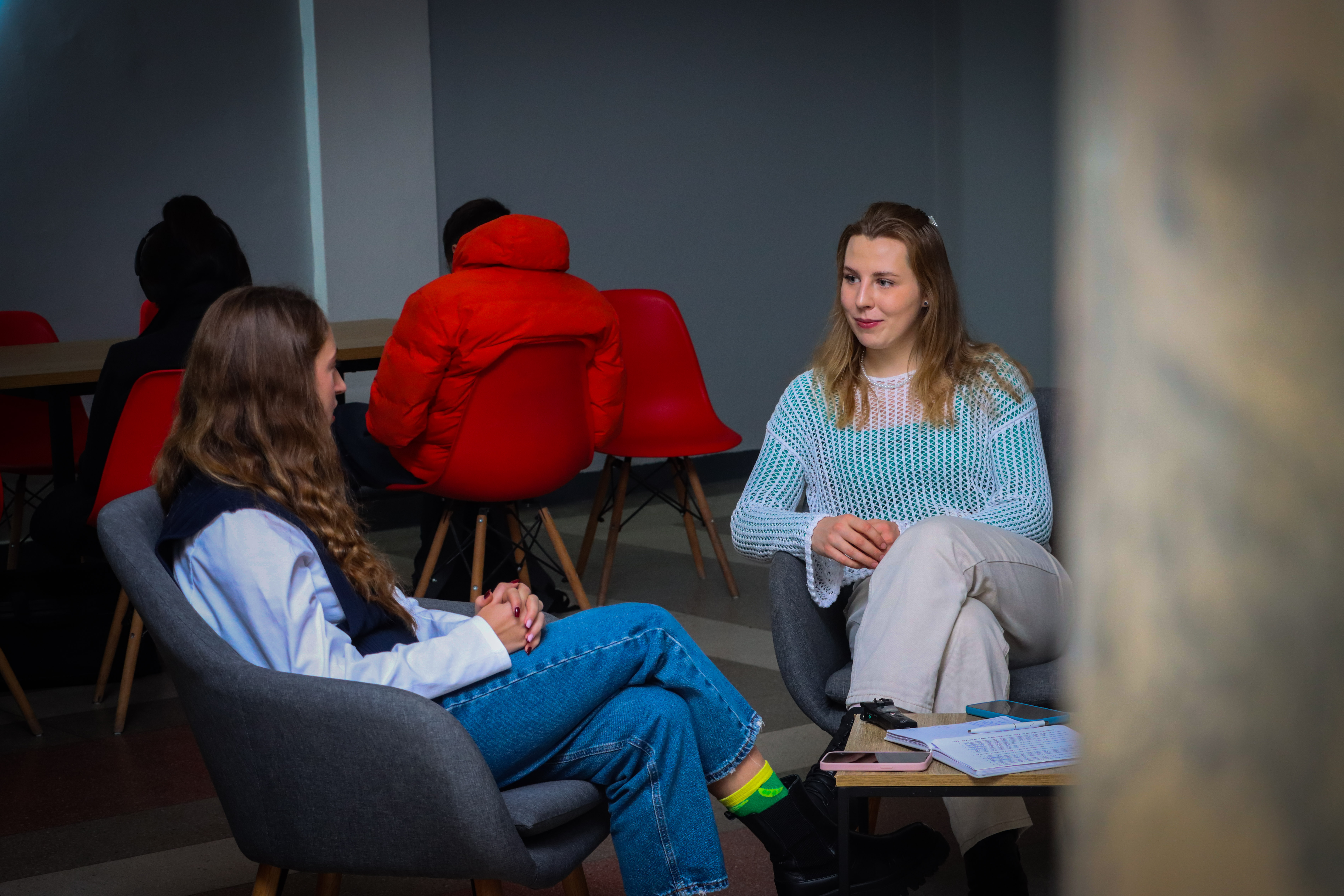
– Why did I choose the specialty “Polish Studies”?
– I was choosing between Journalism and Polish Studies. I really liked writing posts, in the 10th and 11th grades I read a lot of different blogs on Instagram and started writing them myself. Then I was offered a free internship: to write different materials that were checked and published in a magazine. I was interested, so I thought about entering journalism. Then I talked to my mother’s friend, she advised me to choose Polish Studies. English, Polish and languages – in general are things that people constantly learn, and in this case there is an opportunity to implement in another country.
– You are studying under the “Double Diploma” programme. Tell us about the programme itself, how did you find out about it?
– When I first came to the University, Yulia Sviatoslavivna Vaseiko told us about the opportunity to go to Poland for our next year studies. My eyes lit up. I wanted to go to study abroad. It was such a dream for me, so I was sure that I would go. And already in my second year, the second semester, I studied in Poland in the city of Częstochowa at Jan Długosz University. One of the biggest advantages of studying and living in Poland is the dormitory. I realised that this cannot be compared to the Ukrainian conditions, so at first I did not want to go home at all. This became a motivation to work harder in order to create such living conditions for myself in Ukraine, to live not in a dormitory, but in an apartment. Also, traveling in Poland is very comfortable and affordable, the Polish train system makes it possible to get anywhere quickly and cheaply. It also helps to improve your language skills and learn about the Polish culture. Each city is interesting and diverse in its own way.
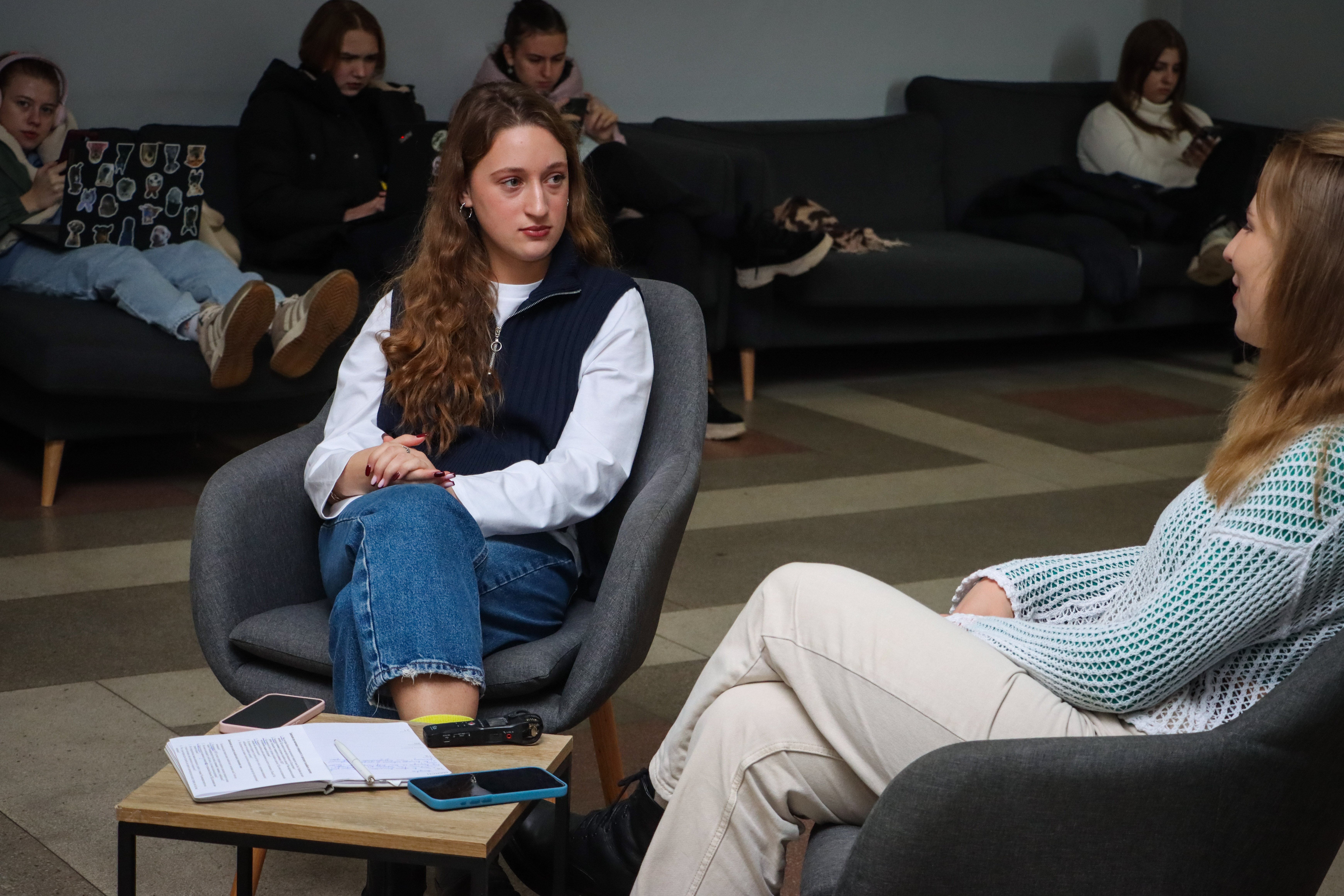
– Share your impressions of life and study in Poland. Were there any challenges and difficulties?
– The first year was especially difficult. The education system in Poland is completely different. Before leaving, of course, the students who had already been there told us about studying, job acceptance, living conditions. In my own practice, some lecturers were not so loyal to us. When the previous year of study was underway, the war had just started. The students were treated more loyally. They were given fewer tasks due to understanding the difficulties of war, especially psychological issues, moreover, staying in another country studying, all by yourself. So it was perhaps a little easier for them. When we arrived, we were already given more tasks. We realised that we had to work very hard, study at two universities, take all exams, so it was very difficult. But I will say that it is more controlling and when you immerse yourself in the process of learning a language, you can see significant progress. When you study a language for an hour or two, it does not have such an impact, but when you read texts all day, analyse them, speak, and remain in a constant language environment, the brain actively works and learns the language.
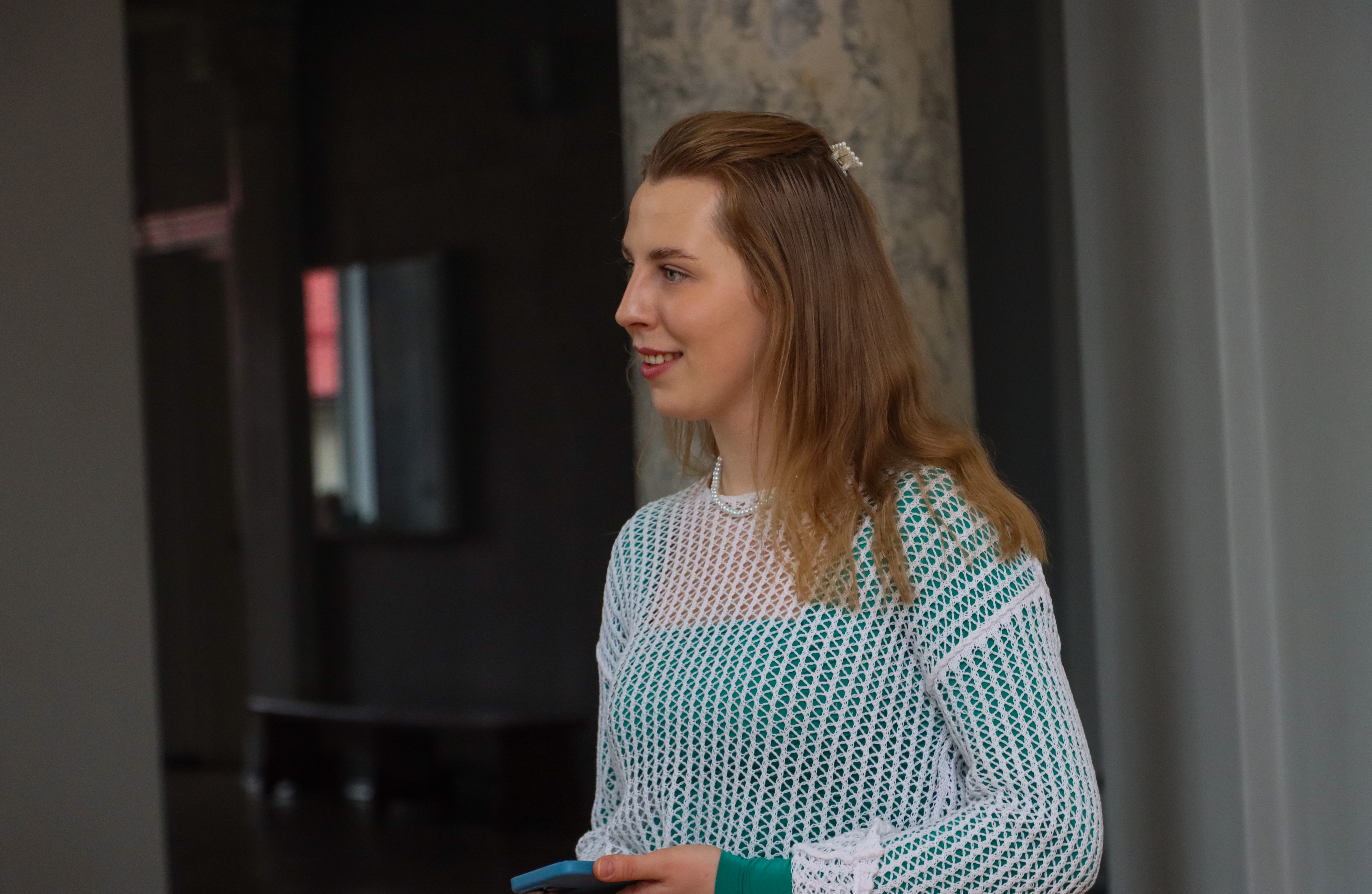
– You have your own foreign language school. Tell me how the knowledge gained at the University helps you in running your own business?
– I learned Polish owing to our University. I had elementary knowledge of Polish even before university studies, but only here I was able to learn it efficiently. Here we learned a lot of new words, delved deeply into new topics, and had to speak a lot of Polish. It was difficult, but it helped me a lot in the future. There was a period when I worked as a waitress in Poland. When I arrived, I already had such a confident B1 level, I could speak, express my own opinions. This work developed confidence and social skills in me. The knowledge that I gained here is the most important thing I use every day. When I teach, I understand that I have to know a lot, give a person confidence that they will definitely be able to learn the language with you, go abroad and study there. I have a lower level of knowledge of English, but a good basis. And thanks to this, as the director of a language school, I can check the knowledge of my teachers. I can check how they conduct lessons, their pronunciation. This level of language is enough for me to check the teachers' work.
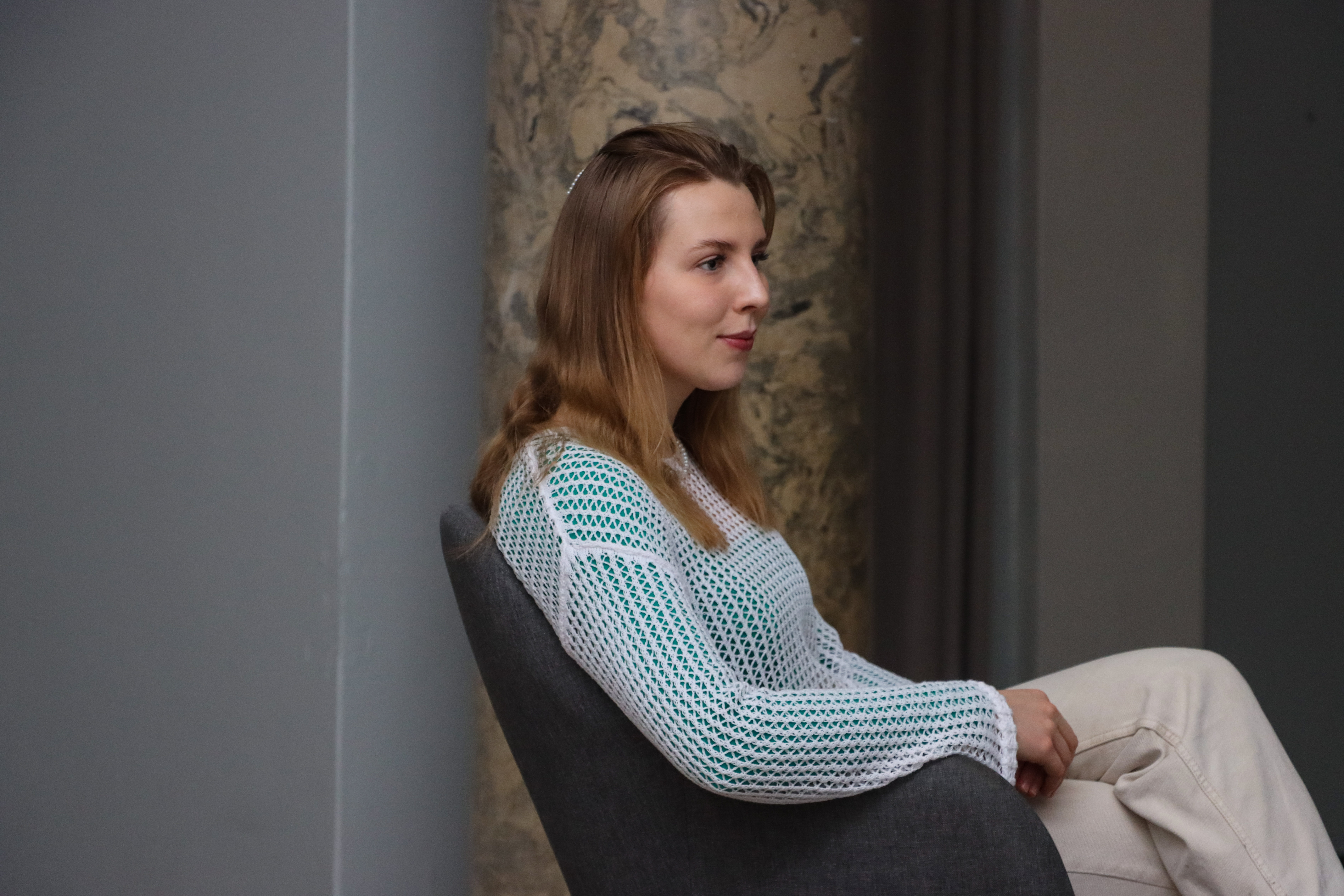
– How do you manage everything, combine studying at the University, participating in the “Double Diploma” programme, developing your own business?
– Honestly, I don’t manage everything. It’s difficult to do all the assignments at two universities on time. I try to focus on everything, although the school takes up most of my time. I try to immerse myself in business development as much as possible. If we talk about the development of the school, then I concentrate on social networks. A personal brand and its recognition need to be developed. I try to plan my time correctly and apply time management. I plan my day so that I can get everything done. I set myself classes in the morning to wake up strictly, not to sleep a little longer, because there are already responsibilities, so I need to get up and fulfill them. There are also various internal affairs, filming, editing (I delegate it), developing my own materials (also delegated), but you need to look for people who will do it, check and coordinate everything.
– Were there any ridiculous situations during your studies?
– From what I can remember, it was when my friend and I went to a store in Częstochowa and told the salesperson that we wanted to buy a cup, and it’s a skull in Polish, and he looked at us very strangely. Then we realised that something was wrong, we started looking for this word in the translator, as it turned out, a cup in Polish is a ''kubek''.
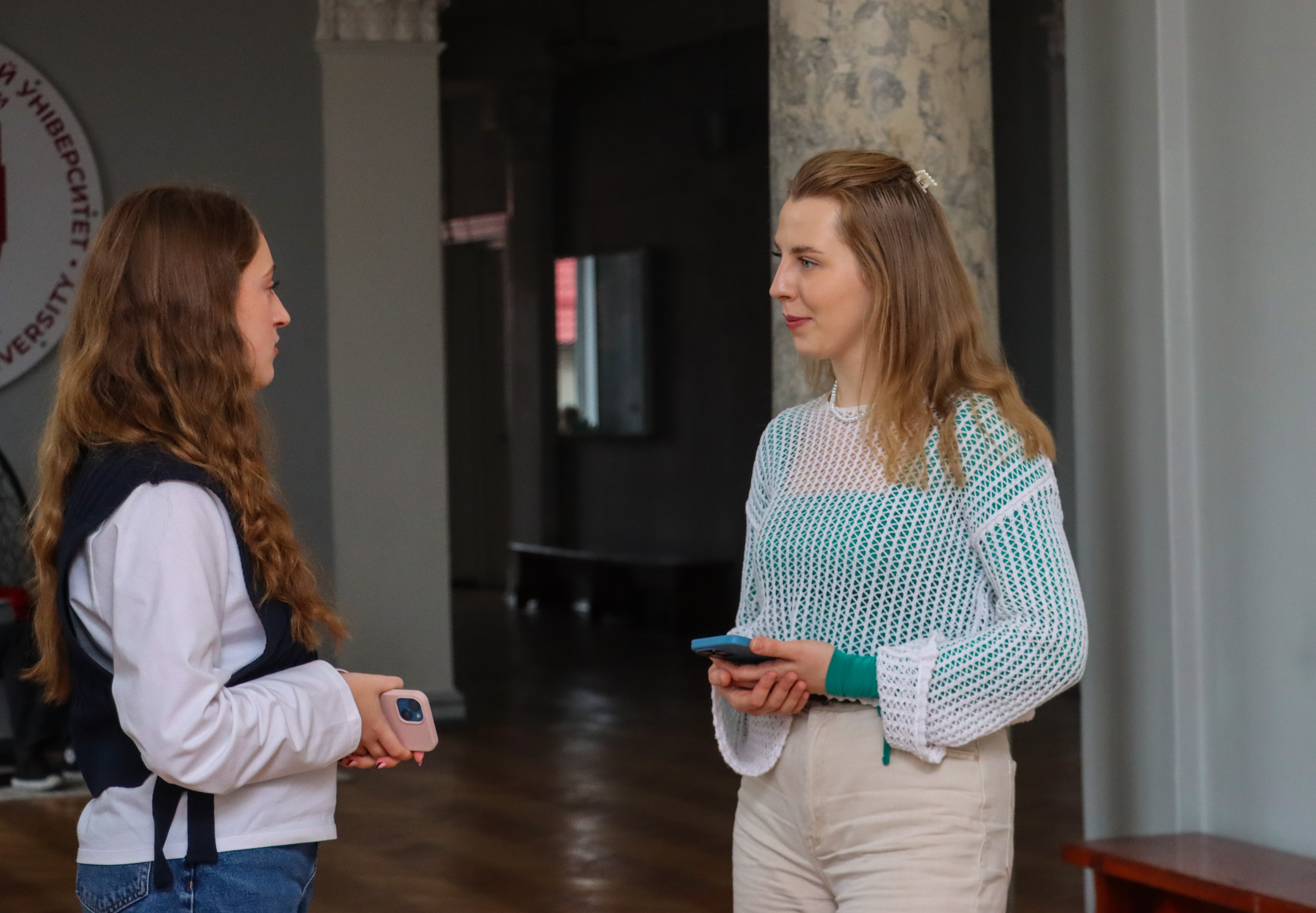
– What advice could you give to the students being uncertain about the participation in the “Double Diploma” programme?
– If there is a question of going or not, then definitely go, because it will help not only to learn Polish, but also to separate from parents. Sometimes it is very difficult for us to solve problems on our own. In Lutsk, we are in our comfort zone, and as soon as we leave it, the development begins, makes us stronger and more disciplined. Then you understand that if you were able to do this, then in the future you will be able to do much more.
Interviewed by Olena YEMETS
